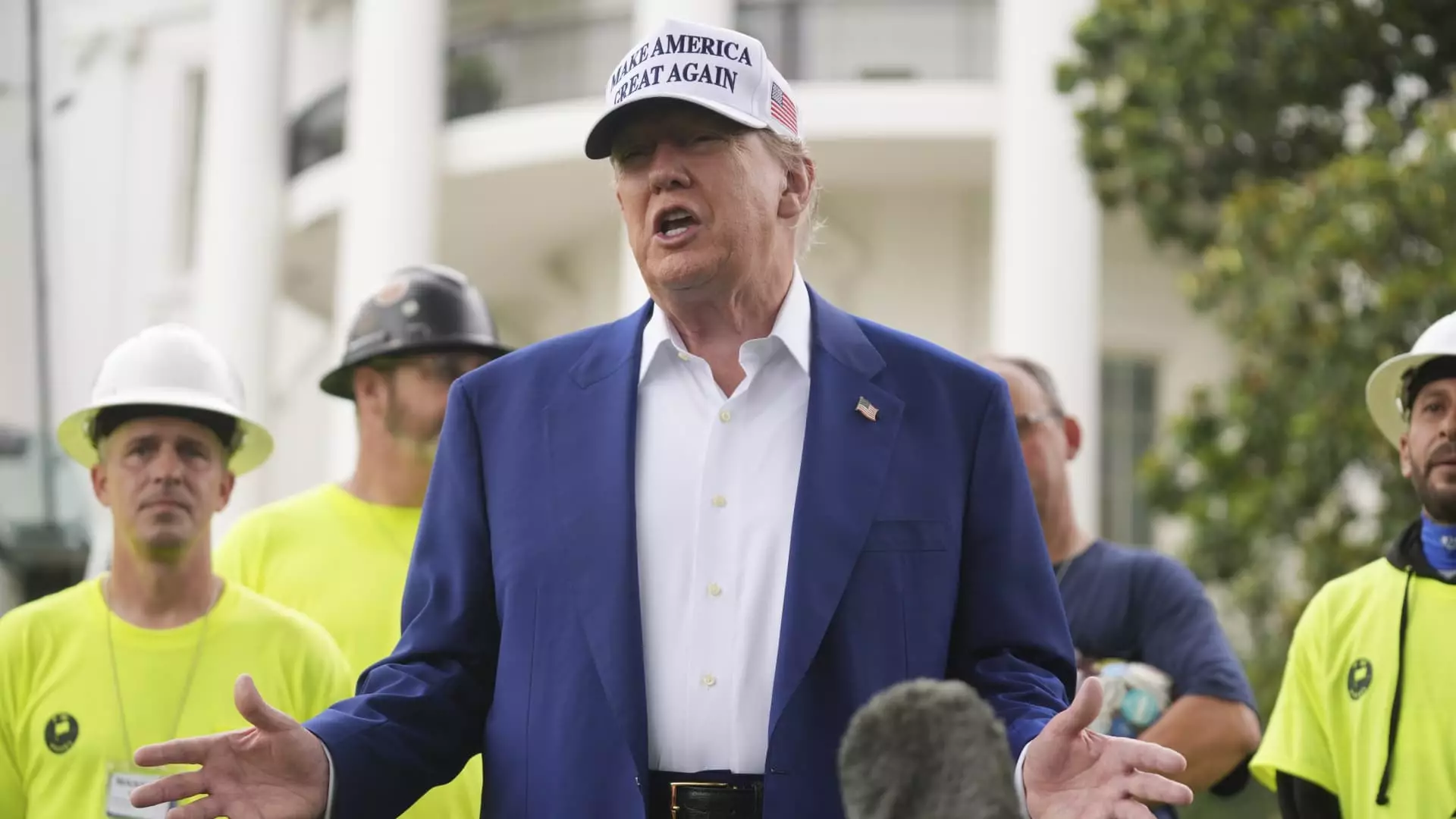In an unrestrained display of vitriol, former President Donald Trump has launched yet another scathing attack on Federal Reserve Chair Jerome Powell, dismissing him as “stupid” and questioning his decision-making capabilities just before a critical interest rate announcement. This kind of confrontation is not merely the latest installment in a lengthy feud; it highlights a far more profound issue at the intersection of politics and economics. When a sitting president resorts to such drastic attacks on the head of a central bank, it exposes vulnerabilities in our economic framework and raises important questions about the independence of institutions that should, ideally, operate free from political influences.
The essence of Trump’s comments reflects a fundamental misunderstanding of economic policy. By insisting that the Fed should cut interest rates by at least 2 percentage points, the former president is prioritizing short-term financial gains over long-term stability—a dangerous game to play in an increasingly volatile global economy. In a world where inflation rates are teetering on the edge and trade wars brew in the background, navigating interest rates becomes a delicate balancing act. Trump’s vociferous demands reveal an urgent need for leaders to engage not only with the immediacy of situation but also to consider broader economic indicators that might warrant caution.
Illusory Gains in Exaggerated Claims
Trump’s assertion that higher interest rates are costing the U.S. “hundreds of billions” in saving costs is not merely hyperbolic; it represents a misreading of complex economic dynamics. Interest rates are not just numbers on a ledger; they’re indicators influenced by multifaceted factors including inflation, employment rates, and global economic conditions. By conflating personal animosity with broader policy implications, Trump risks jeopardizing the careful calibration required to ensure economic growth and stability.
Powell’s hesitance to reduce rates signals a commitment to cautious economic stewardship, a necessary stance given the backdrop of uncertainty. The reality is that the economy is not only influenced by domestic developments but also by international pressures, many of which stem from the very tariffs championed by Trump. The potential for lasting damage caused by a hasty approach to interest rates cannot be overlooked, especially when considering the long-term ramifications of crippling inflation or market instability that could ensue from poorly timed interventions.
The Dangerous Lure of Political Interference
Trump’s confrontational approach raises alarms about the sanctity of an independent Federal Reserve. The notion that a sitting president can dictate monetary policy based on personal whims and grievances threatens to undermine the confidence in economic institutions that form the backbone of our financial system. When Powell and his colleagues assert that they won’t be swayed by political pressure, it underscores the critical importance of maintaining a demarcation between politics and economics. Yet, when Trump jokingly suggests he might do a better job than Powell, it blurs those lines even further, trivializing the complexities and expertise that govern economic decision-making.
In Trump’s world, where success is often measured in instant results and visible applause, his disdain for Powell’s deliberative approach seems almost inevitable. The ex-president’s labyrinth of anger appears tied to more than just economic outcomes—it reflects an identity struggle, where every disagreement with those like Powell is not merely a debate over policy but a personal affront.
The Impending Shift in Economic Leadership
As Powell’s tenure stretches until 2026, the underlying tension between him and Trump casts shadows on the forthcoming discussions regarding interest rate adjustments and, perhaps, the possibility of leadership changes within the Federal Reserve. Interestingly, such a pivotal role should be filled based on meritocratic principles rather than populist rhetoric. The specter of potential reform in the Fed’s leadership, driven by whims and political pressures rather than factual economic analysis, raises the stakes for the American economy.
Ultimately, the fabric of our economic landscape is not as easily unraveled as Trump might presume. And while the wrestling match between political ambition and economic prudence plays out, it is imperative for both policymakers and the public to demand a mature discourse that acknowledges the intricacies of monetary policy. The stakes have never been higher, and the economic health of our nation hangs in the balance as the battle continues.

